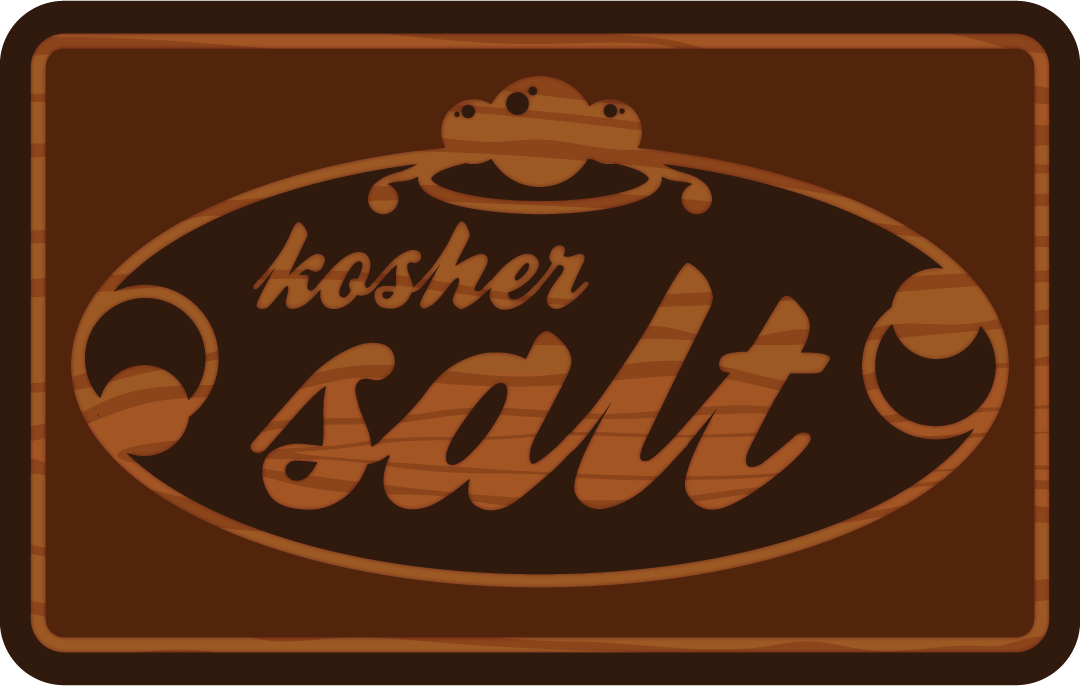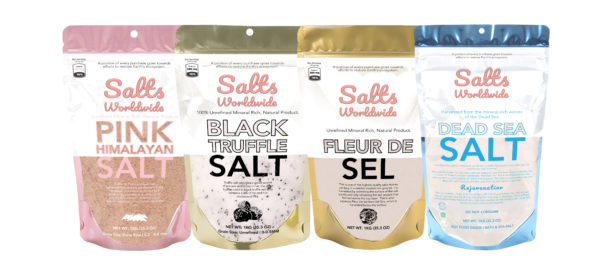The Argument About What Is the Difference Between Kosher Salt and Canning Salt
Kosher salt is created by evaporation procedure. It is different. It typically does not contain any additives though some companies may add some minerals to make it free flowing.
There’s a lot to understand about salt. The salt consists of many tiny grains of salt fused together. If you consider table salt beneath a microscope, you will see that it’s been milled so the salt crystals look like little cubes. If you consider table salt below a microscope, you will observe that table salt was milled such that a lot of the salt crystals look like little cubes. Table salt is easily the most common and is most effective for most recipes. Plain table salt comes in an array of styles too, along with the normal fine grained variety. As a result, if you decide not to eat regular iodine-enriched table salt, then make sure to’re eating a few other foods that have a lot of iodine, like fish, dairy, eggs and seaweed.
Canning salt is a certain selection of salt which is used, since the name implies, in canning foods. It is a type of salt that is specially used for canning purposes. It’s significant to remember that canning salt is a great substitute in baking.
Typically salt is composed of sodium and chloride. Kosher salt doesn’t dissolve easily in little amounts of liquids which is the reason why it’s not proper for baking where there aren’t any wet ingredients. It is a great alternative, as long as it is pure salt without any additives. On the other hand, it can be used as a general purpose salt. Kosher salt, although large grained, has lots of surface area. In addition to being only lightly refined, it also has no additives such as iodine, making it a very pure, plain salt with a mild flavor. You could also have noticed that it’s called cheese salt, canning salt or kosher salt.
Nutritionally speaking, salt makes it possible to to retain water and gives electrolytes that are crucial to the normal functions of your cells and organs. Salt in cheese not only will help to enhance the flavour, but in addition, it will help to preserve it. So watch the quantity of salt which you put in it. Sea salt comes from salty seawater. On the other hand, since it is the most unrefined variety of salt, it also tends to be the most expensive. Sea and table salt is basically the identical thing. Consequently, sodium chloride (a.k.a. salt) is necessary for exercise to happen.
Salt is one of the most important ingredients in canning and pickling, second just to the caliber of the fruits and vegetables themselves. Lite salt employs potassium chloride to minimize the sodium level in the salt. Iodized salt consists of a small quantity of potassium iodide and dextrose as a dietary supplement to reduce thyroid disease. It contains a very small amount of iodide, which is a required nutrient for us humans. There are many sorts of salt available. The most commonly available and easily accessible salt for the majority of people is named Himalayan Pink Salt.
What Is the Difference Between Kosher Salt and Canning Salt – the Story
There are various kinds of salt and even colors. Himalayan salt has a little bit of potassium. Unquestionably, Himalayan pink salt has minerals that if ingested in some specific quantities offer documented health benefits.
The main reason why we’ve iodized salt is since there isn’t any other means to make sure human intake otherwise. As stated by the Mayo Clinic, the principal difference between that fine, table salt and sea salt is the manner where the salt is processed. Unknown Salt is potentially the most important ingredient in cooking. Just like anything, an excessive amount of salt might cause problems.
Salt has led the manner in world history at unique times. As most salt is created in relatively the exact same way, there isn’t much difference the moment it comes to health benefits in which type is used. Pickling salt is normally utilised in pickling and canning foods but may also be used for baking. It is available in large bags or boxes in supermarkets, but it is hard to find in cities. In addition, it has fine granules that make it easy to dissolve in a brine. It does not contain any iodine and additives while the same cannot be said about all kosher salts. For the reason, it’s not advisable that you substitute other salt in canning recipes unless you’re able to use a weight measurement rather than volume.


